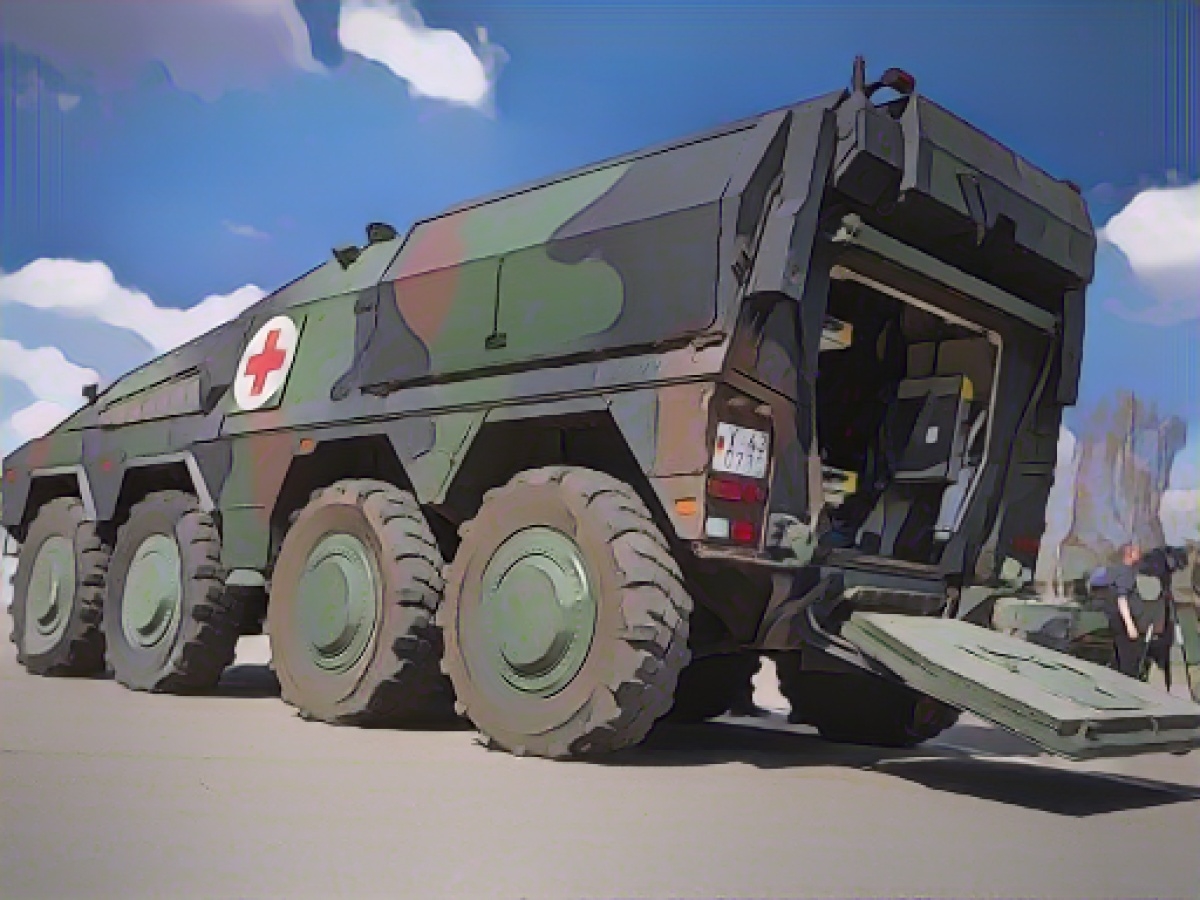Medical experts plead for lessons to be learned from the war in Ukraine
Bundeswehr medical experts are calling for far-reaching conclusions to be drawn from a systematic analysis of the course of the war in Ukraine to date. To this end, more armored and larger rescue vehicles, including hospital trains, would have to be procured, the conditions for first aid on the battlefield would have to be improved and cooperation with civilian health services in Germany would have to be expanded. This is made clear in a study submitted to the German Press Agency. It also states that "the required needs must now be realized urgently and without further delay".
Plans in Germany are based on being able to transport two thirds of patients by road and one third by air. Trains do not play a role. In Ukraine, however, almost two thirds of the wounded are transported by rail and one third by road for safe treatment. Air transport is the absolute and dangerous exception because Ukraine has no air superiority.
It is already apparent today that the Bundeswehr "lacks large-capacity means of transport for high patient volumes and that significantly more transport capacity is needed to cope with the expected patient numbers". For example, hospital buses are required. And: "As a result, rail-bound transfers with hospital trains are particularly important over longer distances."
For the investigation, the Bundeswehr Medical Service Command systematically evaluated images and information from Ukraine and conducted interviews with Ukrainian medical personnel. The injury patterns are determined by the consequences of explosions, shrapnel, burns and injuries caused by chemicals.
The German Armed Forces' medical sector emphasizes the need to draw lessons from the ongoing war in Ukraine, identifying a requirement for enhancing defense medicine. This includes acquiring more armored and expansive rescue vehicles, including hospital trains, improving battlefield first aid conditions, and expanding cooperation with German civilian health services.
The Bundeswehr's current transport plans prioritize road and air transport, but a study indicates that the war in Ukraine illustrates the importance of railway-bound transfers with hospital trains for large-volume patient transportation over longer distances.
Source: www.dpa.com








